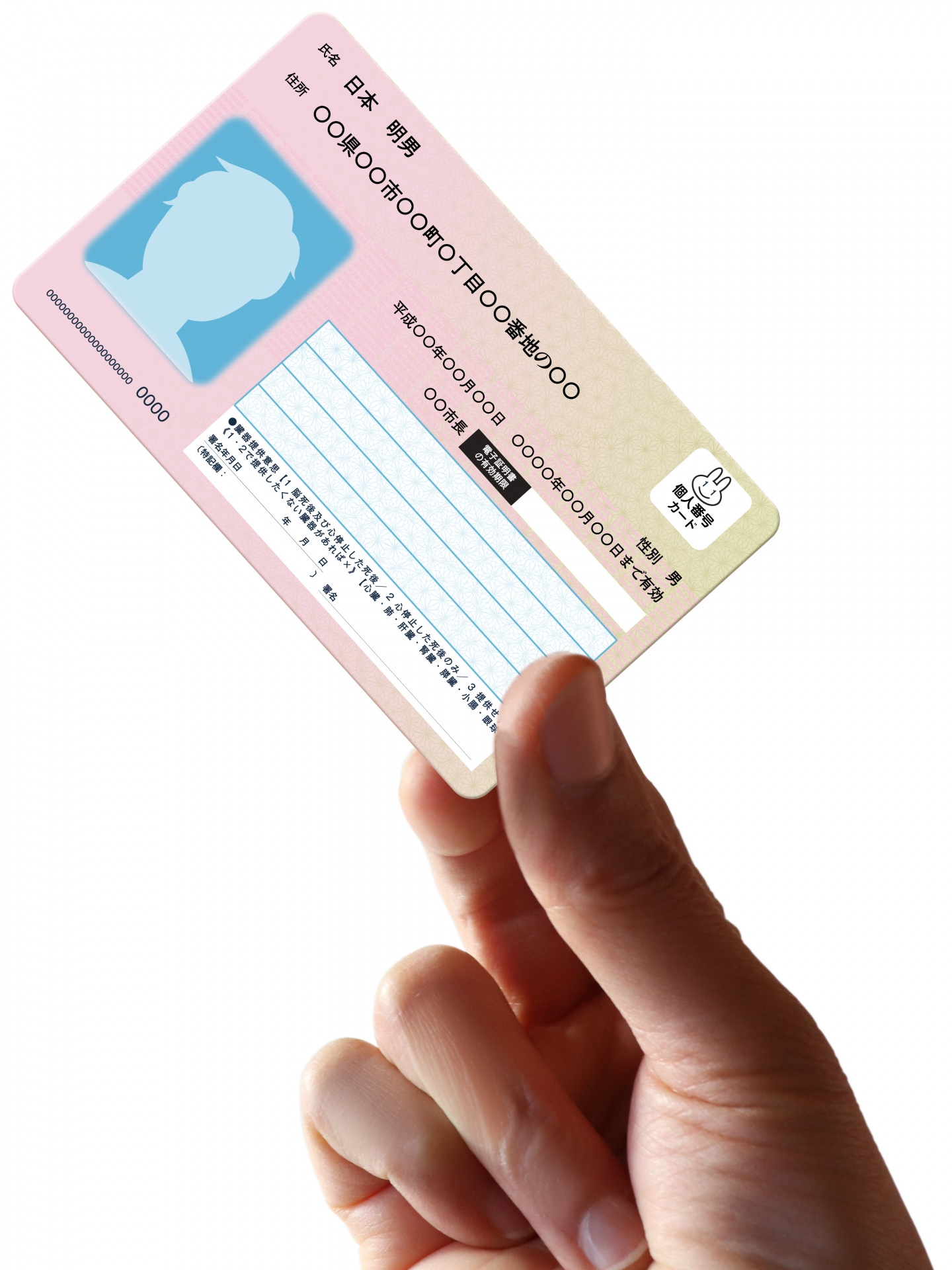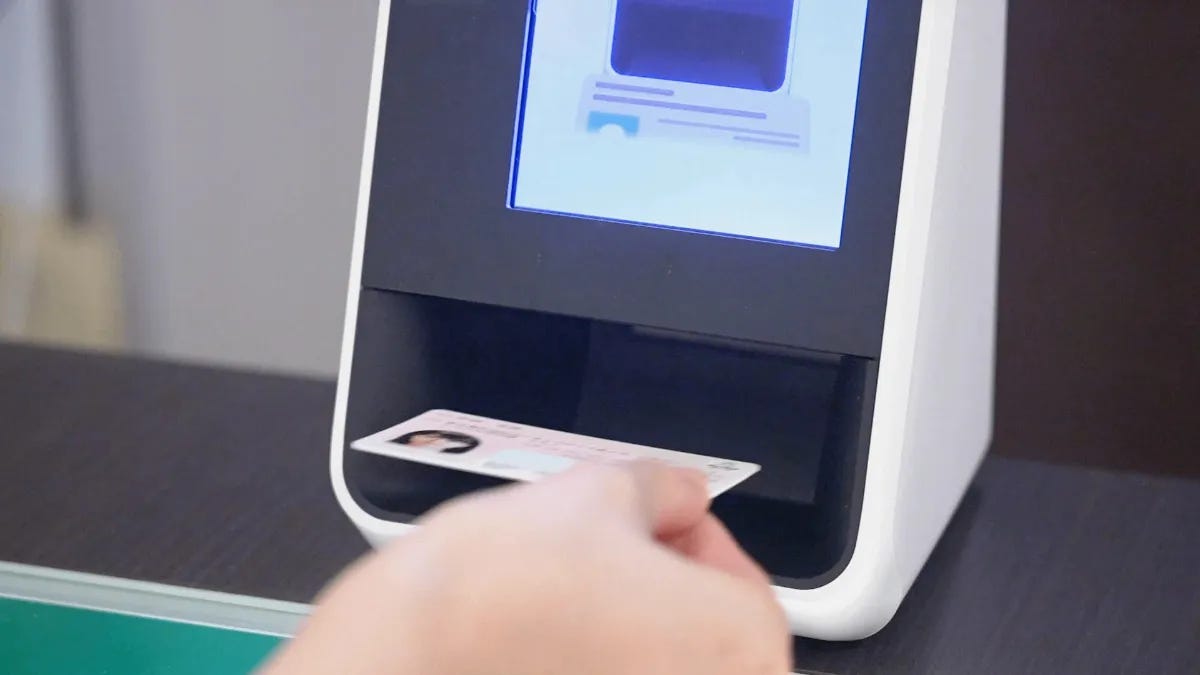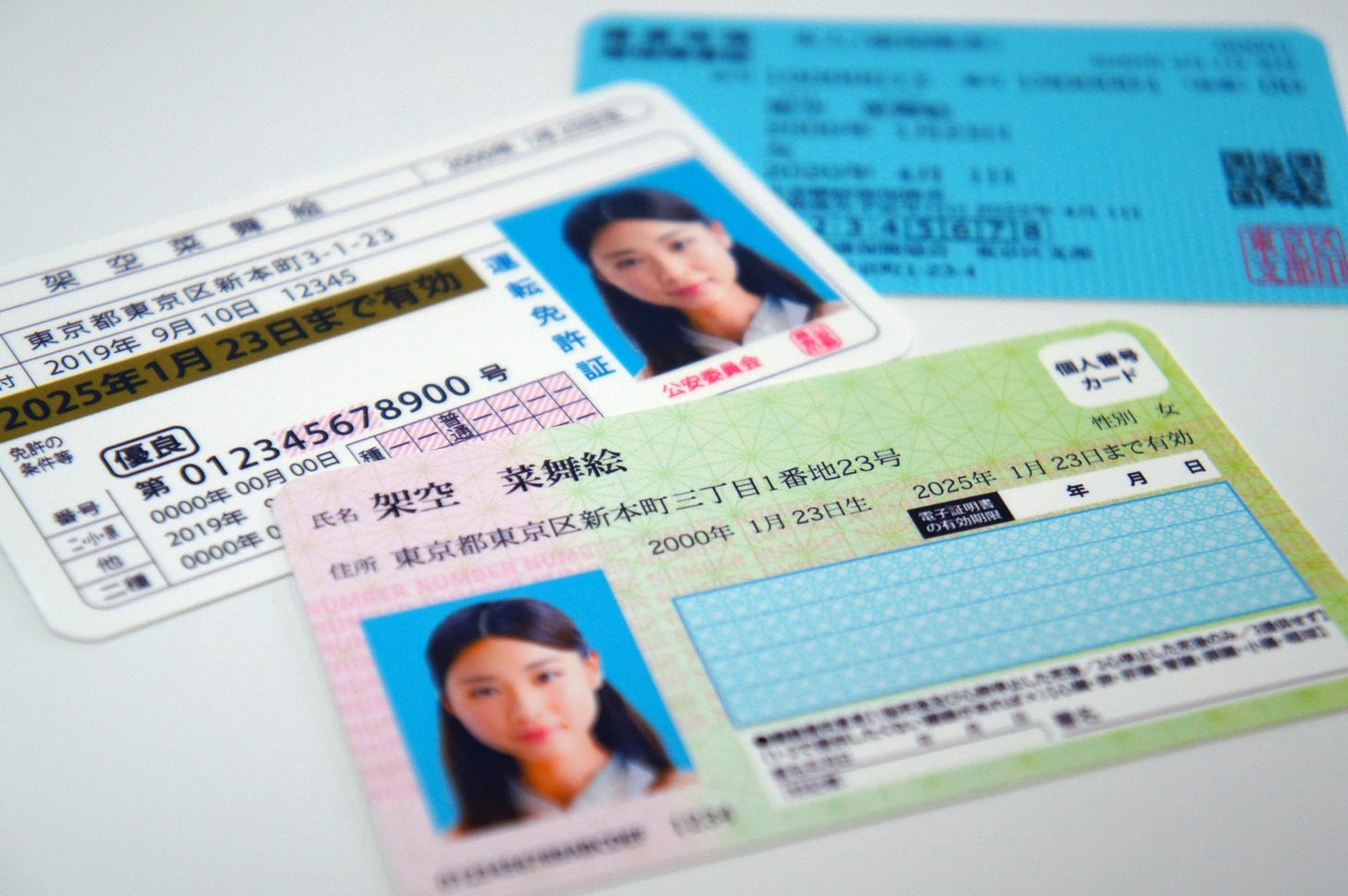

Discover more from Real Gaijin
Deadline Approaching to Replace Old Health Insurance Cards with Japan's MyNumber National ID
The old school is going kicking and screaming, but the government is pushing for the My Number national ID card to replace the old health insurance cards for their medical DX initiative.

What’s new: The December 2, 2024 deadline is literally right around the corner for the planned phase-out of the old health insurance cards issued by local governments across Japan. They are to be replaced with the new national ID card, originally called the personal number card or kojin bango kado (個人番号カード) in Japanese, but since 2016 known as the MyNumber card or mai nanba kado (マイナンバーカード)1. To promote adoption of the new card, the central government has emphasized the benefits of using the MyNumber card when visiting the hospital or pharmacy, touting "improved quality of medical care" and highlighting its role in "preventing fraudulent use."
Skeptics - including more than a few medical professionals - remain concerned about the lag time involved in record keeping, the potential for cybersecurity concerns and data breaches, etc. That said, it's really only a matter of time before compliance is likely to be forced on all residents of Japan.

Why it matters: The Japanese government is firmly committed to implementing various initiatives related to "medical digital transformation" or "medical DX," referred to in Japanese as iryo DX (医療DX)2. The use of the relatively new MyNumber card as an all-in-one identification system (including an embedded chip that can be read by a scanner) is a critical component of this push to use technology to streamline the nation's national health insurance system.

By the numbers: Despite the government's lofty goals and the looming deadline, many residents and medical facilities still seem to be putting off the inevitable transition.
The first batch of MyNumber cards was introduced on January 1, 2016.
By the end of September 2024, 93.9 million people, or 75.2% of the population, had received a MyNumber card. That sounds like a lot, but it also means that about 1 in 4 people have yet to get on board.
According to the Ministry of Health, Labor & Welfare, the usage rate of the MyNumber Card as a replacement for a traditional health insurance card was only 13.87% as of the end of September. There is still a long way to go to achieve full compliance by December 2, 2024.
What they’re saying: Even though we're now more than 8 years into the program, not everyone has fully embraced it.
"There are certain advantages to the MyNumber insurance card, but it's not as good as it's made out to be..." - Anonymous head of a large pharmacy chain (who prefers not to comment publicly)
This businessperson highlights the time lag that can sometimes be involved in consolidating payment information. Apparently, it can take more than a month for the data on the receipt (medical fee statement) to be reflected in the national clearinghouse, so the data on the drugs for the last month and a half is not always available. A pharmacist who wants to check whether a drug in a new prescription could be harmful to a patient who is already taking other medications needs an up-to-date summary of which medications are currently being used. Theoretically, the time lag would make it possible for a desperate patient to visit multiple medical institutions with the same symptoms and receive multiple prescriptions (e.g., for sleeping pills which could be abused). As a result, skeptics say the system is still too slow to prevent such fraudulent behavior.

However, the current system of relying on patients to carry their own analog "medicine notebook," which is called okusuri techo (お薬手帳) in Japanese, is also not effective in preventing such fraud. It's basically just an honor system, and not everyone bothers to use this old-school solution. (By the way, just last week, I used my MyNumber card at the pharmacy to fill a prescription and the pharmacist was able to see a list of all my previous medications. So, the system seemed to work as intended.)
Japan's Digital Agency is currently building a system that will allow medical institutions nationwide to share electronic medical records and electronic prescription information, with the goal of making it operational next year. Once available, medical institution A should be able to check the information on the drug prescribed by medical institution B without any time lag. Doubters cite the fact that many of Japan's smaller medical clinics have not even adopted electronic medical records, and that multiple formats of electronic medical records are still commonplace.
While it's technically up to the individual consumer to choose whether to use their MyNumber card to register as an in- or out-patient at a hospital or to pick up medications at a pharmacy, it's highly likely that pharmacies will, in particular, soon begin to really drive adoption. This is because pharmacies are financially incentivized to encourage compliance. An extra government subsidy is available for pharmacies that achieve a certain level of adoption. Without these extra payments, it will soon be almost impossible for a traditional pharmacy to make ends meet.

Fun fact: The MyNumber card will soon replace driver's licenses in Japan, too. While this date could end up slipping, the planned start date for the so-called "MyNumber License", which will allow you to use your MyNumber Card instead of a driver's license, is scheduled for March 24, 2025. So, presumably, all driver's licenses issued after that date will simply be in the form of electronic data loaded onto your MyNumber card. However, old licenses will still be valid until they expire (sometimes up to 5 years for accident-free "Gold License" holders).

What’s next: While the central government has already issued deadlines for compliance, given the current turmoil in the Diet, with a general election for the House of Representatives taking place today, official policy could change tomorrow.
Regardless of the outcome of today's election, the government has been committed to this core component of its medical DX initiative for more than a decade. So, it's inevitable that MyNumber cards will replace the old health insurance cards sooner rather than later.
Commentary: Although there are those who are weary of having a single national ID card that can be used for so many things, including health insurance, I am all for it. It’s not just about having less to carry in your wallet.
Another way to think about this is to consider how risky the status quo is in practice. When a new patient registers at a hospital, clinic, or pharmacy, the standard operating procedure is for the medical service provider to make a photocopy of the patient's health insurance card issued by their town hall. What happens to this photocopy, which contains sensitive personal information? What if it gets misplaced? Who has access to it - now and in the future? I feel more comfortable enrolling myself using an electronic scanning device. I am willing to trust that there are safeguards in place to protect my privacy - at least to a greater extent than having a photocopy of that data sitting in a filing cabinet that may be accessed by someone who may not leave the proverbial paper trail that they would if they accessed an electronic medical record.
As for the adoption of the new technology for reading MyNumber cards, I have a feeling that most medical providers will catch up quickly. I live in rural Japan, but I recently had the opportunity to use one of these new facial recognition card readers (you only have to remove your mask for a few seconds to get it to work) at a local clinic for a simple outpatient visit and at the adjacent pharmacy to fill a prescription. It was simple and painless.
While this may seem counterintuitive given Japan's reputation for being technologically advanced, as the nation comes down to the home stretch for managing the adoption of this new technology, the Japanese should look to India for inspiration! This nation with the world's largest population of more than 1.4 billion people has already implemented a national health identification system called the Ayushman Bharat Digital Mission (ABDM). It provides every Indian citizen with a unique health ID that can be used to access their health records across multiple healthcare providers. If a developing nation as large and diverse as India can do this effectively, Japan can certainly follow suit and take this important step toward medical DX.

What do you think? What’s your opinion about the introduction of a national identification system like Japan's MyNumber card? What about using this unique electronic record for a variety of applications from health insurance to driver's licenses? All answers are completely anonymous, even to the author.
Links to Japanese Sources: https://www.mhlw.go.jp/stf/iryoudx.html and https://news.yahoo.co.jp/articles/b648c8c1de7b5fbe6e52ef15b7cca50114901881.
#MyNumber #MyNumberCard #PersonalNumberCard #MedicalDX #DigitalTransformation #個人番号カード #マイナンバーカード #マイナ保険証 #マイナ #調剤報酬の加算 #健康保険の資格確認 #健康保険証 #医療DX #レセプト #診療報酬明細書 #医療DX推進体制整備加算 #電子薬歴 #お薬手帳
Please note that you can subscribe to Real Gaijin for free. If you are so inclined, you can also purchase an annual subscription for a relatively small fee.
However, I understand that even the lowest level of annual subscription allowed by Substack may seem too high for many. If you just want to buy a coffee for Real Gaijin (or maybe a green tea), you can also make a small donation here:
https://buymeacoffee.com/realgaijin
All levels of support - including just liking a particular article and/or leaving a comment - are very welcome. Thanks again for reading.
While Real Gaijin lives in Substack, you can also find Real Gaijin on a few other platforms (listed in alphabetical order).
https://www.instagram.com/real_gaijin_on_substack/
https://www.threads.net/@real_gaijin_on_substack
https://www.tiktok.com/@real.gaijin
https://www.youtube.com/@RealGaijin
https://www.linkedin.com/in/mark-kennedy-5b50b71/
The name "MyNumber Card" was chosen over "Personal Number Card" because it was thought that the term "MyNumber" would make it easier for citizens to intuitively understand that the card is linked to their own number. It is much more than the equivalent of an American Social Security Number (SSN). In addition to confirming personal identification by a numeric code, MyNumber cards have a variety of functions, including the use of electronic certificates for various government procedures and private sector services.
Japan's Ministry of Health, Labor & Welfare (MHLW) defines medical DX as the use of information and data generated at each stage of healthcare (disease prevention, consultation, diagnosis, treatment, prescription, preparation of medical certificates, etc., medical fee claims, care through collaboration between medical and nursing care, regional medical collaboration, research and development, etc.) through an overall optimized infrastructure (such as the cloud). The aim is to externalize, standardize, and share the work, systems, and data storage of health, medical, and nursing professionals, in order to promote prevention among the general public, enable them to receive better quality medical and nursing care, and transform the shape of society and people's lives.
MHLW has announced that the 5 goals of its medical DX initiative are as follows: (1) to improve the health of the public, (2) to provide seamless, high-quality medical care and other services efficiently, (3) to improve the operational efficiency of medical institutions, (4) to make effective use of system personnel, and (5) to create an environment for the secondary use of medical information.
MHLW has further clarified that its mission includes the following 3 major initiatives: (1) the creation of a nationwide medical information platform, (2) the standardization of electronic medical record information, and (3) the revision of medical fees.
Subscribe to Real Gaijin
Unveiling the Real Japan: An American Expat's Inside Look | Hot takes, commentary, and unfiltered insights on life as a foreigner in Japan.























Yes, digital IDs are being sold to the sheeple for all the reasons you cite; but many see digital IDs as a civil rights issue, viewing their current form as the pot of hot water in which the frogs are to be boiled, the camel's nose under the tent, a slippery slope towards total technocratic control and, in effect, digital slavery through digital currency, censorship and social credit scores.
"Not vaccinated? Critical of the government? Sorry, no entry. No shopping. No driving. No flying."
I know you believe that government is benevolent; but others see it very differently - the people now being jailed in UK for their social media posts, for example. And it's not as though our rulers are keeping their intentions a secret:
https://www.youtube.com/watch?v=rpNnTuK5JJU&pp=ygURY2Fyc3RlbnMgYmlzIGNiZGM%3D
They want total control and digital IDs are the keystone to achieving it. To imagine that Japan is not included in the globalists' plan is mistaken.
There is something far more sinister at work here in the long run.